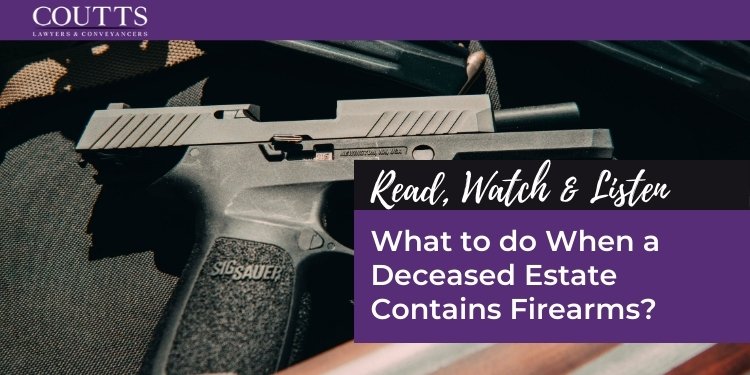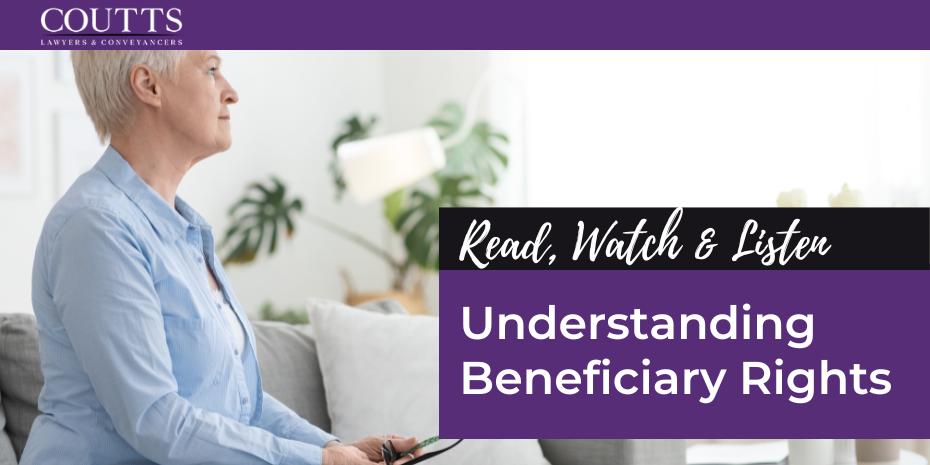Key Take-Outs
- There are provisions within the Firearms Act 1996 (“the Act”) that allow the executor or administrator of a deceased estate to possess firearms registered to the deceased person, without the authority of a license or permit, for many purposes.
- Whilst in possession of such firearms an executor or administrator is not authorised to use the firearms and must ensure that they comply with the safekeeping requirements for the firearms in their possession.
Losing a loved one is never easy and poses its very own personal challenges. This can make dealing with their estate an even more arduous process. Especially if their estate includes firearms which you may or may not have experience with dealing with before. Due to the potentially dangerous nature of possessing and using firearms, there are crucial and comprehensive regulations that govern firearm licenses and firearm possession, and therefore a number of factors must be considered when dealing with them as part of a deceased estate.
Dealing with Firearms in a Deceased Estate
As an executor or administrator of an estate you are authorised to retain possession of the firearms for either 6 months immediately following the death of the person who was authorised to possess the firearms concerned or until disposed of lawfully, whichever event occurs first. (Section 82A of the Act).
The executor or administrator of a deceased estate must notify the Firearms Registry of the death of the licensed person who possessed the firearms as soon as practicable after the person’s death.
Retaining Possession and Notifying the Firearms Registry
Once in contact with the Firearms Registry, the executor/administrator must complete an authority form and provide the following information:
- A copy of the will or proof of status as the administrator; and
- The full name of the person currently in possession of the firearms, their residential address, safe storage address and confirmation if they are a beneficiary.
One of the following:
- The full name, date of birth, residential address, safe storage address, licence number and preferred telephone number of the beneficiary of the firearms under the deceased person’s will. If this happens, the beneficiary of the firearms will also need to sign the authority;
- If the firearms are disposed or sold through a firearms dealer, the dealer’s name, licence number and date of disposal are required;
- If the firearms are no longer required and are to be unconditionally surrendered to police for destruction, then the receipt number issued by police is required; or
- If none of the above applies, indicate the disposal details.
Providing Information to the Firearms Registry
If a beneficiary of a registered firearm is unlicensed and wishes to keep the registered firearm/s from the deceased estate, they must first apply for a license for the relevant category/categories. This can be done online via the NSW Police Force Community Portal. Once a firearms licence is acquired, the beneficiary should contact the Firearms Registry to confirm that as a beneficiary they are entitled to take possession of the firearms. The ownership of the firearms will be transferred to the beneficiary’s licence, and they will also receive the appropriate registration certificate.
If upon discovery, the firearms are unregistered, the executor or administrator must immediately surrender the firearms to the police as it is an offence to supply, acquire, possess, or use an unregistered firearm (section 36(1) of the Act). However, thankfully the Act provides an exemption to prosecution for the offence of an unauthorised possession of a firearm, provided the firearm is immediately surrendered to the police (section 60 of the Act). Only once the firearms have been surrendered an application may be made to the court to allow a licensee to register those firearms. Once the court approves, an application for a PTA (permit to acquire) must be made for each firearm.
At Coutts, we understand that this can be a very daunting task. If you have concerns when dealing with an estate of a loved one that contains firearms, our Wills & Estates Team are able to assist you through the process as efficiently and stress-free as possible.
For further information please don’t hesitate to contact:
This blog is merely general and non-specific information on the subject matter and is not and should not be considered or relied on as legal advice. Coutts is not responsible for any cost, expense, loss or liability whatsoever to this blog, including all or any reliance on this blog or use or application of this blog by you.



